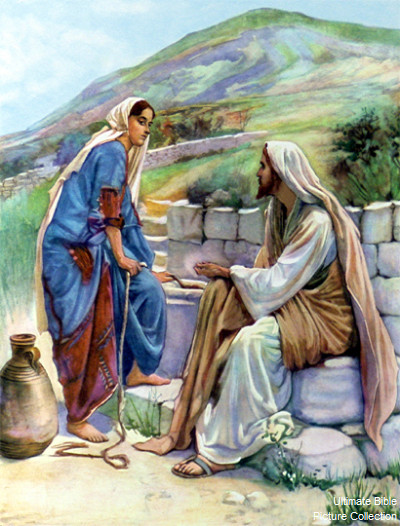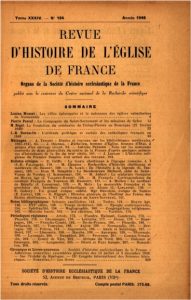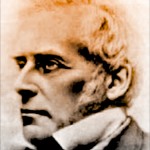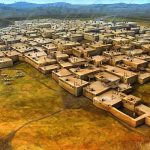A short summary of a preaching by J. N. Darby entitled ‘The Woman of Samaria’ – Collected Writings volume 12 (Evangelical 1) p. 1.. Click on link for original.
This was the first of series of thirteen preachings. Unlike his wrigins, the preachings are much easier to follow – so – if you have time, read the original.
 Three chapters in John’s gospel speak of the effects and operations of the Spirit of God.
Three chapters in John’s gospel speak of the effects and operations of the Spirit of God.
- John 3: New birth – the power and efficacy of the Holy Spirit in giving life
- John 4: The Well – a well of water springing up into everlasting life
- John 7: Rivers of living water – the internal effect of the indwelling Spirit
The Lord Jesus Christ is the giver of the Holy Spirit to them that believe. As sinners, we have no relationship with God – that relationship had been lost forever. However, because of Christ’s sacrifice and intercession, it has been restored for the believer. All our blessings are through Him. He died for our sins, and rose again. He was made ‘sin for us, who knew no sin, that we might be made the righteousness of God in him’ (2 Cor 5:21). The knowledge of God’s righteousness is by the Spirit. Knowing it we can share in God’s happiness, having fellowship with the Father and unhindered communion with God. This is the gift of God: there is no other way
The Pharisees were jealous because Jesus was making more disciples than John. In order to follow peace with all men, Jesus left Judea for Galilee, passing through Samaria on the way. It had been a long journey and He was weary, so He sat down by a well to recover His strength. It was not just that journey, He had left His home of glory and of blessedness, and come down to this weary, sinful world. There everything around would make Him weary – sin, hatred, ingratitude, ill-will, open opposition, and toil. However, He was never weary of love.
So what do we find? The Lord of glory, the Son of the Eternal God, sitting alone with a wicked sinner by a well, asking her for a drink of cold water – the humblest request possible. He was to settle the great question of eternity with her, showing her what she was herself, and telling her who He was. In love the Lord is still humbly asking people for a drink – that is, to be reconciled – ‘We pray you in Christ’s stead, be ye reconciled to God’ (2 Cor 5:20).
Among the Jews it was considered obnoxious to have anything to do with the Samaritans, let alone to be beholden to them for a favour. Despite what the woman asked, the Lord did not enter into argument about the prejudices of the Jews, but focused instead on her salvation. So He says, ‘If thou knewest the gift of God, and who it is that saith unto thee, Give me to drink, thou wouldest have asked of him, and he would have given thee living water’ (v. 10). Her carnal mind could not take that in, it just did not mean anything to her, and it does not mean anything to people now: divine things appear stupid and valueless. Nor did she know the Giver. She said, ‘Sir, thou hast nothing to draw with, and the well is deep: from whence then hast thou that living water?’ (v. 11).
So what is this gift, and the Giver?
- The gift – a well of living water – the Holy Spirit
- The Giver – Christ.
It is not a pool, which, even if full now, can dry up. It is a fountain which can never dry up. The believer has it in himself, and he has for ever. But first the believer must first get to know the Giver.
The woman was occupied with her worldly duties and pursuits, and could not rise to anything higher. Satan uses these mundane things (even a waterpot) to keep souls from Christ. Dear reader, is there any waterpot which is keeping you from knowing Christ, and seeing His great salvation? It may be harmless, innocent or even praiseworthy – your family, your job or your pastimes.
Now, all of a sudden, the woman realised that there was something in what the Lord had been saying. She said, ‘Sir, give me this water, that I thirst not, neither come hither to draw’ (v.15). Though she was still thinking naturally, and may even been sceptical, the Lord persevered with her in love. The Lord is always patient: He never gets weary when it comes to souls. He says ‘Go, call thy husband’, and follows this up with ‘Thou hast well said, I have no husband: for thou hast had five husbands; and he whom thou now hast is not thy husband’ (v. 16-18). In effect, He showed her that she did not realise the wretched, ruinous state she was in. Her conscience vibrated. In the presence of One who was acquainted with the hidden recesses of her heart, she was stripped of her self-disguise. She had never really believed that she was a sinner. Now she knew that she was, like the man who came into the assembly in 1 Cor 14:24, ‘He is convinced of all, he is judged of all; and thus are the secrets of his heart made manifest; and so, falling down on his face, he will worship God, and report that God is in you of a truth.’
There was some discussion as to the Lord’s being a prophet, and the arguments as to where one should worship. The Lord bore with this. But she was in the process of leaving her waterpot and coming to know the Saviour. She even appeared to be looking forward to His (the Messiah’s) coming. The Spirit lead her to say, ‘I know that Messias cometh, which is called Christ; when he is come, he will tell us all things’. Jesus’ reply, ‘I that speak unto thee am he’ (v. 25-26).
The woman had wanted water and had come with her waterpot. Now she had a well of water and had left her waterpot. Christ had revealed Himself to her soul; the Messiah’s glory was now her aim and end. She knew Him, not from hearsay but personally, and immediately she preached Him to others. ‘Come, see a man that told me all that ever I did: is not this the Christ’ (v. 29). A total revolution had taken place.
It is a process in which we are taken out of a former position, as strangers, even enemies, and are introduced to a new position, where we are brought near to God. We no longer have a worldly but a heavenly portion – Christ’s portion. The Spirit shows us that our new life is the life of Christ. In fact, we are in the same position as Christ Himself!
The world’s wealth, power and distinction now has little value to us. We find no wealth but in Christ; we find no power but by Christ; we have no distinction but from Christ. Our joy is full. We have a fresh spring, drawing from the Lord of glory, giving us fellowship with millions of others who have had the same experience with the Lord, and who have received the Holy Spirit.
Dear reader, how is it with your soul? Have you asked for the living water? Is there this well within you? Do you have it yourself, or you relying on others? – that will not do. Now, if you have it, what practical influence has it had? Are you separated from the world, and separated to God? Do you think about your high calling? – heirs of God, and joint heirs with Christ! (See Rom 8:17) Are you imitating Him? He was ‘holy, harmless, undefiled, separate from sinners’ (Heb 7:26). Are you?
Do you have this spring, this well of water? If not, you do not yet know the gift of God. if you have not got it in you, you’ve got nothing. Don’t deceive yourself, nothing else will do. When temptation, trial, or affliction comes, your pool will be dried up without any resource – a useless pool without a spring,
Summary by Sosthenes
November 2016






